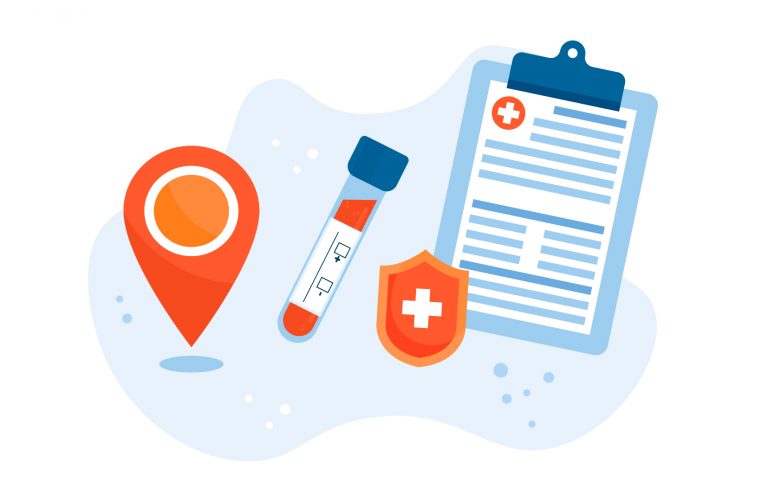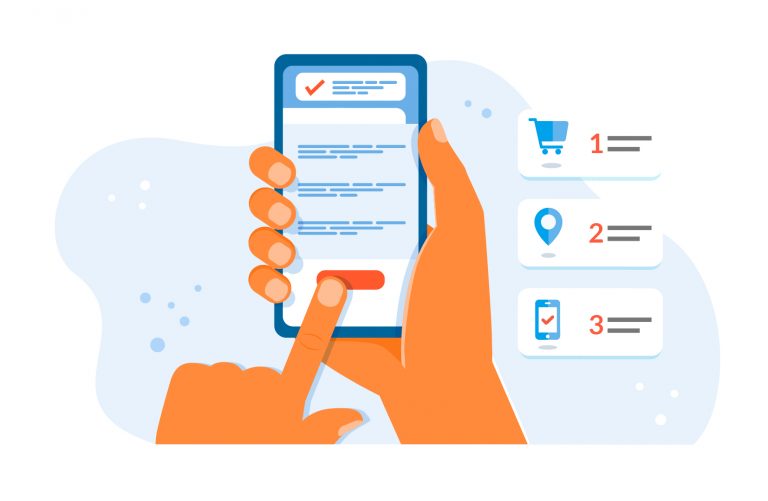Gonorrhea tests are used to identify the STD of the same name. They are usually performed at a healthcare clinic or at a healthcare provider’s facility, although there are some at-home options available. However, this process of scheduling usually involves calling and verbally asking for a gonorrhea test, and undergoing uncomfortable testing methods.
At Priority STD Testing, you can get tested for gonorrhea comfortably and discreetly. When you schedule your test through Priority STD, you’ll enjoy the privacy of scheduling online and non-invasive tests. No painful swabbing! Just a quick and simple urine test.

ORDER
Purchase your lab order privately online or over the phone. The process is simple, quick, and secure. Our care counselors are available to answer any questions you may have or help schedule testing.
VISIT
Get tested same day at any of our 4,000 private locations, no appointment is needed after ordering. Our collection facilities are discreet, no other patients will know the reason for your visit.
RESULTS
Our test results are lightning fast and typically process in just 24-72 hours. You can access your results online through a secure patient login, or by calling one of our care counselors. Treatment options are available as well.
The easiest way to order gonorrhea testing.
How Gonorrhea Testing Works
A gonorrhea test usually consists of a urine test, but in some cases could require swabbing of the urethra in men and the cervix in women to confirm the presence of the infection.1
We know that you’re already uncomfortable enough, which is why all of our STD tests are non-invasive. Just a simple urine test is required!
Once your test is performed, you’ll receive test results in just 24-72 hours. If you test positive, you are provided with all of the information and support resources you need to start treatment.
Why Order Gonorrhea Testing
With over 600,000 cases reported every year, gonorrhea is the 2nd most common STD, especially if you’re between 15-25 years of age. Women are slightly more likely to contract the infection, but both men and women are susceptible.
Gonorrhea can be present in multiple parts of the body due to how infectious it is. It can be spread through vaginal, oral and anal sex and can be present in the vagina, penis, eyes, throat, and mouth.
A gonorrhea infection doesn’t always show symptoms but can lead to a plethora of other life-threatening medical conditions,2 such as pelvic inflammatory disease (PID) or infertility if left untreated. A test is the only way to determine if you are infected.
When to Get Tested
Sexually active men and women under 25 years of age should get tested for gonorrhea every year.
If you’re concerned you’ve been infected, it is recommended to wait 4 days after you suspect you’ve contracted the infection. Abstaining from any sexual activity in the meantime is recommended before getting a gonorrhea test. If you’re pregnant, it’s a good idea to get tested for gonorrhea within your first and third trimesters.
Gonorrhea Treatment
Luckily, gonorrhea is curable! A round of antibiotics usually does the trick to clear the infection up, letting you get back to your life.
That being said, it’s critical that you finish the full antibiotic treatment to avoid reinfection or to develop a drug-resistant strain of gonorrhea that does not respond to treatment.3 It’s just as important to abstain from sexual activity during treatment to avoid spreading the infection further. At Priority STD, we offer hassle-free gonorrhea treatment. For $65 we will provide a prescription for treatment that can be picked up at a pharmacy near you.
Although gonorrhea is treatable, a possible diagnosis can be scary. This is why Priority STD makes it simple for you to get tested without the hurdles.
Using our easy-to-use online schedule platform, set up a test at a local private collection facility and get results within 72 hours. All that’s needed is a simple urine test—no swabbing required! After your test, we don’t leave you high and dry. Our care counselors are available at any time to give you the resources and support you need.

Our Tests are FDA Approved and Performed in CLIA Certified Labs
Twin STD Panel
$119- Chlamydia
- Gonorrhea
10-Panel STD Test
Most Popular $198- Chlamydia
- Gonorrhea
- Hepatitis B
- Hepatitis C
- Syphilis
- Herpes 1
- Herpes 2
- HIV 1 Ab
- HIV 1 Ag
- HIV 2 Ab
Individual STD Tests
- Chlamydia - $89
- Gonorrhea - $89
- Hepatitis B - $59
- Hepatitis C - $59
- Herpes I/II - $99
- HIV 1/2 - $79
- Syphilis - $69
- Trichomoniasis - $109
- Mycoplasma Genitalium - $139
- HIV RNA Early Detection - $169
Do you take walk-ins?
To get same day testing, simply purchase your lab order either online from our website or over the phone with one of our care counselors. Once your order has been placed, you can get tested immediately at any of our local and discreet collection facilities without an appointment. No other patients at the testing center will know your reason for visiting other than to give a routine urine and blood sample.
Which antibodies can a serology test detect?
Currently, a serology test can measure two antibodies: IgM and IgG.
- Immunoglobulin M (IgM) is produced as the body’s first response to a SARS-CoV-2 infection. Generally, IgM may provide short-term protection and can help tell if an individual has been recently infected. However, there is not enough evidence at this time to suggest that people who have IgM antibodies are protected against future SARS-CoV-2 infections.
- Immunoglobulin G (IgG) is the most common type of antibody. It’s made several days to weeks after being exposed to SARS-CoV-2. Generally, IgG remains in the body and may provide long-term protection against future exposure. However, there is not enough evidence at this time to suggest that people who have IgG antibodies are protected against future SARS-CoV-2 infections.
- Immunoglobulin M (IgM) is produced as the body’s first response to a SARS-CoV-2 infection. Generally, IgM may provide short-term protection and can help tell if an individual has been recently infected. However, there is not enough evidence at this time to suggest that people who have IgM antibodies are protected against future SARS-CoV-2 infections.
- Immunoglobulin G (IgG) is the most common type of antibody. It’s made several days to weeks after being exposed to SARS-CoV-2. Generally, IgG remains in the body and may provide long-term protection against future exposure. However, there is not enough evidence at this time to suggest that people who have IgG antibodies are protected against future SARS-CoV-2 infections.
What is usually the first sign of chlamydia symptoms?
Common chlamydia symptoms include unusual penile/vaginal discharge and burning or discomfort while urinating (neither of which are particularly unique to chlamydia, mind you). More often than not, however, the first sign of chlamydia symptoms is...nothing. No symptoms whatsoever. While the complete absence of irritating and/or painful symptoms might sound like a relief, keep in mind that it does make chlamydia difficult to self-diagnose without a proper test. And even if chlamydia symptoms are not present, those carrying the infection are likely just as contagious as those who are symptomatic.
How do I get my test results?
Your test results are accessible through a secure login unique to your order, updated 24 hours a day including partial results. Once your final results are available, you'll be notified by email discreetly. Test results are expedited as a rush order and typically process just 24-72 hours after visiting the collection facility. If you have questions about your results or require a treatment consult, our care counselors are just a phone call away. Nothing will ever be sent to your home or healthcare provider to respect your privacy.
Sources
- Staff, Healthwise. 2021. “Gonorrhea Test”. Cham.Org. https://www.cham.org/HealthwiseArticle.aspx?id=hw4905.
- “Detailed STD Facts – Gonorrhea”. 2021. Cdc.Gov. https://www.cdc.gov/gonorrhea/about/.
- “Basic Information About ARG – STD Information From CDC”. 2021. Cdc.Gov. https://www.cdc.gov/gonorrhea/about/.
